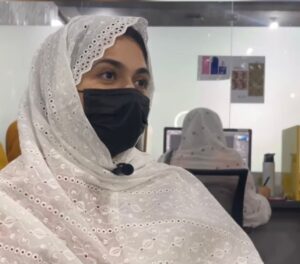PESHAWAR: Every exam season, most of students in Khyber Pakhtunkhwa turn to a familiar shortcut—pocket guides. These tiny booklets, packed with answers, are officially banned, but that hasn’t stopped their demand.
In bustling bookstores, shopkeepers quietly slip them under the counter, selling them to students desperate to pass. A full set costs 1,500 rupees, a small price for what many see as a lifeline. Some share the cost with friends, while others rely on them entirely.
“These little books make all the difference,” said Adeel, a student stuffing a freshly bought set into his backpack. “Without them, we won’t pass.”
Despite crackdowns, pocket guides remain an open secret in the province’s exam culture. Photocopied and condensed to fit in a pocket, they are smuggled into exam halls—tucked into socks, sleeves, or even hidden behind calculators.
Examinations in Khyber Pakhtunkhwa are underway, with nearly 200,000 students from Peshawar, Charsadda, Upper Chitral, Lower Chitral, the tribal district of Mohmand, and Khyber district appearing for the tests. The Peshawar Educational Board has designated 776 examination halls in government and private schools, deploying 5,400 invigilators and staff to oversee the process.
Authorities say they have taken stringent measures to prevent cheating, including the installation of CCTV cameras in all exam halls. Section 144 has been imposed, making it a criminal offense to sell or purchase pockets. Shops caught selling them have been sealed, photocopy centers near exam halls have been shut down, and police patrols have been increased.
Peshawar Division Commissioner Riaz Khan Mahsud chaired a meeting on exam transparency, emphasizing the government’s resolve to implement strict measures. “We will ensure fair exams this year,” he said. “Those performing their duties well will be rewarded with incentives and certificates. Those who fail will face strict disciplinary action.”
Officials have also ordered uninterrupted electricity supply during exam hours and ensured the provision of drinking water and other necessary facilities. Additionally, all principals of government and private schools, along with officials from the Private Schools Regulatory Authority, have been summoned next week to discuss further measures.
The reality inside the exam halls
Despite the crackdown, students and booksellers remain unconvinced that these efforts will make a difference.
“This is how students pass,” said Inayat Ullah, a bookseller in Khyber Bazaar. “Nobody studies textbooks anymore. The syllabus is too vast, and they don’t have time. These guides tell them exactly what to write.” Inside the exam halls, cheating methods have evolved. While pocket guides remain a top choice, some students rely on chits hidden in sleeves, calculator covers, or even under their desks. Others use WhatsApp groups where leaked questions and solved answers circulate minutes before the exam begins.
“We know invigilators check pockets, but they don’t check socks,” one student said with a smirk. “That’s where I keep mine.”
A never-ending cycle
Education officials argue that this dependency must end. Dr. Muhammad Imran, chairman of the Peshawar Board of Intermediate and Secondary Education, says the problem runs deeper than just cheating—it reflects a larger crisis in the learning system. “This isn’t just about stopping shortcuts,” he said. “We need students to believe in learning.” Yet, the cycle repeats every year. Raids are conducted, sellers are arrested, and students are warned. But as exam season approaches, the demand for pockets always resurfaces.
“Ban them, raid the shops, shut down the photocopiers,” one seller said with a knowing smile. “It won’t change anything. Exam season comes, and pockets will always find their way into students’ hands.”











